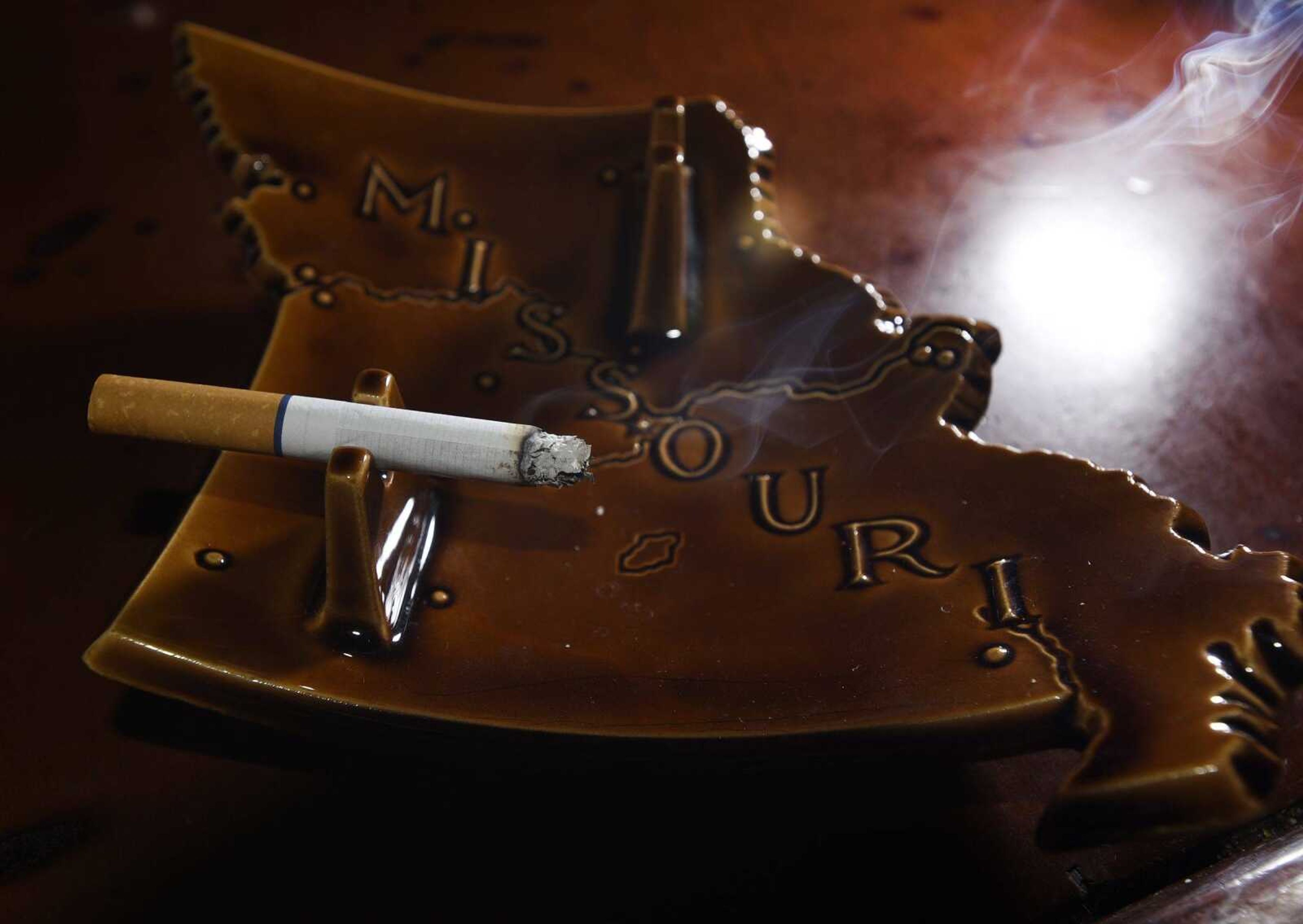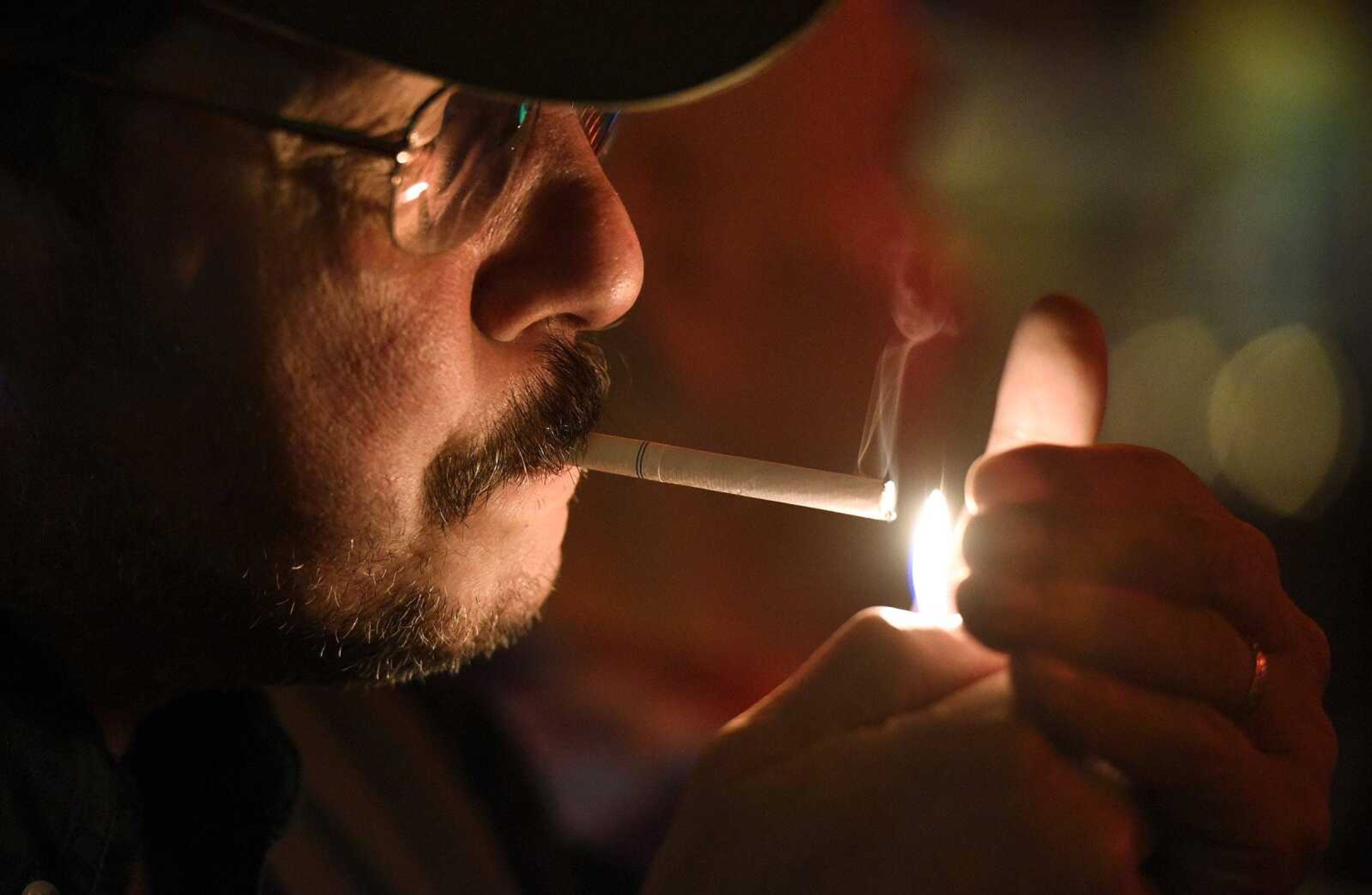Complex politics behind two Mo. tobacco tax issues
The tobacco industry's support of two tobacco-tax hikes on the November ballot in Missouri has ignited opposition from a coalition of health organizations that typically favor higher cigarette taxes. The American Heart Association, American Lung Association, American Cancer Society and other health groups contend Amendment 3 and Proposition A seek to "deceive Missouri voters and keep cigarettes cheap."...
The tobacco industry's support of two tobacco-tax hikes on the November ballot in Missouri has ignited opposition from a coalition of health organizations that typically favor higher cigarette taxes.
The American Heart Association, American Lung Association, American Cancer Society and other health groups contend Amendment 3 and Proposition A seek to "deceive Missouri voters and keep cigarettes cheap."
Constitutional Amendment 3 would raise the state's lowest-in-the-nation cigarette tax by 60 cents over four years and impose an additional 67-cents-per-pack tax on discount brands of cigarettes.
Under Amendment 3, the retail cigarette tax would climb from 17 cents to 77 cents per pack by 2020.
The measure would raise the tax on discount brands of cigarettes by $1.27.

Proposition A would increase taxes on tobacco products by 2 cents every two years until 2021. The end result would be a 23-cent tax increase that would bring the total tax to 40 cents a pack. But a provision of that measure stipulates the tax would revert to 17 cents a pack if another initiative-petition-brought tobacco-tax measure is proposed in the future.
Amendment 3 would generate an estimated $263 million to $374 million annually to fund early-childhood education and, to a lesser extent, children's health-care and smoking-cessation programs.
Proposition A is expected to generate between $95 and $103 million annually for Missouri's roads and bridges when the full tax increase is in place.
But what would be funded with the tax hikes is not the issue for the anti-tax coalition.
"It is unfortunate two tobacco-industry-sponsored ballot measures will appear on Missouri's ballot in November. Voters should be alarmed that those who profit from keeping smokers addicted have hijacked worthwhile causes by forcing Missourians to settle for a paltry increase in the tobacco tax that will not deter smoking," the coalition said in a written statement.
Karen Englert, Missouri government-relations director for the American Heart Association, said her organization normally supports tobacco-tax hikes. But she said the two measures on the November ballot would provide only small, incremental increases in the cigarette tax.
By contrast, increasing the cigarette tax by $1 or more per pack would help deter people from smoking, she said. The proposed tax hikes on the November ballot are "not going to have an impact on smokers," Englert said.
"The only winners in both of these increases is the tobacco industry," she said.
Campaign funding
To date, big and small tobacco companies have poured almost $10 million into efforts to pass the two tax measures, Englert said.
Tobacco giant R.J. Reynolds has spent over $6 million to push for passage of Amendment 3, she said.
Convenience-store owners and discount-cigarette manufacturers crafted the competing Proposition A, insisting Amendment 3 was "outrageous and unfair."
Ronald Leone, executive director of the Missouri Petroleum Marketers and Convenience Store Association, said Proposition A offers a more reasonable tax increase that would go to "a common purpose to improve our roads and bridges."
Leone made his group's main goal clear.
"Our first, second and third priority is to defeat Amendment 3," he said.
The constitutional amendment not only would levy a much greater tax on "little tobacco companies," but that tax would continue to climb "every single year," Leone said. He estimated it could increase by a minimum of 3 percent annually.
Leone said big tobacco companies want to increase "their profits and market share."
But others argue big tobacco companies are seeking a level playing field. They pay millions of dollars annually to the state as a result of a 1998 lawsuit settlement, while smaller tobacco companies don't make such payments.
What some people view as a "poison-pill" provision in Proposition A that could lower the tax to its current level in the future is an effort to rein in repeated efforts to raise tobacco taxes, Leone said.
"We are sick and tired of fighting tax increases every couple of years," he said.
But supporters of Amendment 3 argue the proposed constitutional change would provide dedicated funding of early-childhood education programs.
Only 2 percent of 3-year-olds and 3 percent of 4-year-olds were enrolled in public, pre-school programs in 2014, according to the "Yes on 3 for Kids" campaign group.
Jane Dueker, a spokeswoman for the group, said, "We are so far below every single surrounding state, it is embarrassing."
She said she doesn't care about the motives of R.J. Reynolds or other tobacco companies.
"I could care less about who supports us and why," she said.
Dueker decried those who oppose Amendment 3 on the basis of tobacco-company support rather than looking at how it would benefit children.
Confusing situation
The competing tax measures could be confusing to voters, local election officials and state lawmakers said.
No one is certain what would happen if both issues pass. Would both take effect, or would one supersede the other?
Dueker argued Amendment 3 to the state constitution "would trump" Proposition A, which is a statutory measure.
Southeast Missouri State University political-science professor Rick Althaus said the measure that garners the most votes would be implemented in some states. But in this case, Althaus suggested a constitutional amendment would take priority.
Althaus said Proposition A has "kind of a ticking time bomb" in its provision to return the cigarette tax to its existing level if a petition for another tobacco-tax increase surfaces in the future.
"I would question if that provision would hold up to constitutional scrutiny," he said.
Leone said the question of which measure would take effect could end up in court.
"It has never happened before," he said of having two tobacco-tax measures on the same election ballot in Missouri.
Even the office of the Missouri secretary of state, which oversees elections, doesn't have an answer.
"That's not our office's jurisdiction (to decide that question) and would likely be something for the courts to decide," said Stephanie Fleming, director of communications for the secretary of state's office.
Smokers react
The tobacco industry's support of tax hikes doesn't sway area smokers.
Mike Gilbert of Cape Girardeau said he has smoked since he was 15 years old.
"I am against it," he said of any effort to raise tobacco taxes.
A pack of major-brand cigarettes already costs more than $5 a pack. He doesn't want to see the cost go higher.
Taxes are high enough, said fellow smoker Joyce Ellet of Grand Tower, Illinois, who stopped by Discount Smoke Shop on South Sprigg Street on Thursday to buy a carton of cigarettes.
"I vote 'no' for any tax increase," she said. "It just infuriates me. We get taxed to death."
Still, she said, she doesn't plan to quit smoking, even if Missouri voters approve a hike in the tobacco tax. She said a pack of cigarettes still would cost less in Missouri than in Illinois.
In Illinois, the tobacco tax is $1.29 a pack, according to Amendment 3 supporters.
Smoker Jami Richardson of McClure, Illinois, said those who smoke are "unfairly singled out" by such tax measures.
"We get taxed first," she said.
Even so, Richardson said such tax hikes won't deter smokers or make them kick the habit.
mbliss@semissourian.com
(573) 388-3641
Connect with the Southeast Missourian Newsroom:
For corrections to this story or other insights for the editor, click here. To submit a letter to the editor, click here. To learn about the Southeast Missourian’s AI Policy, click here.











